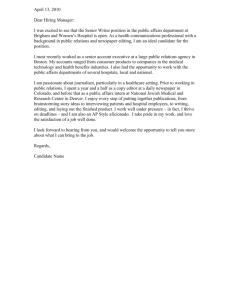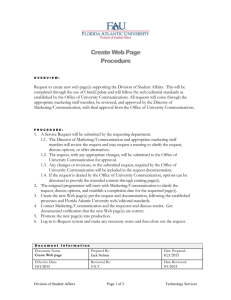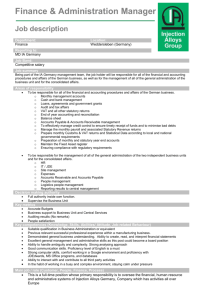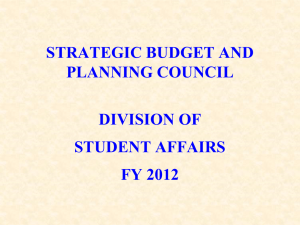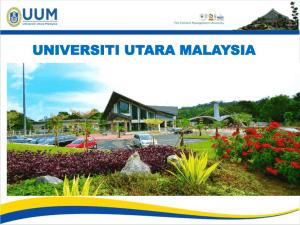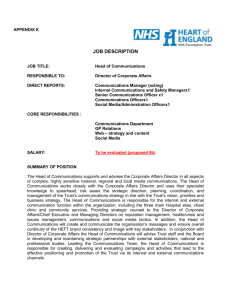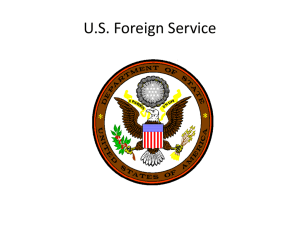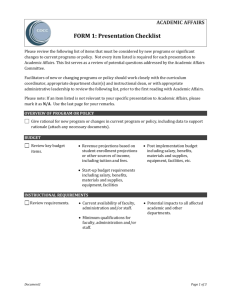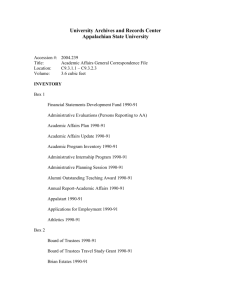Comprehensive Assessment Model for Student
advertisement
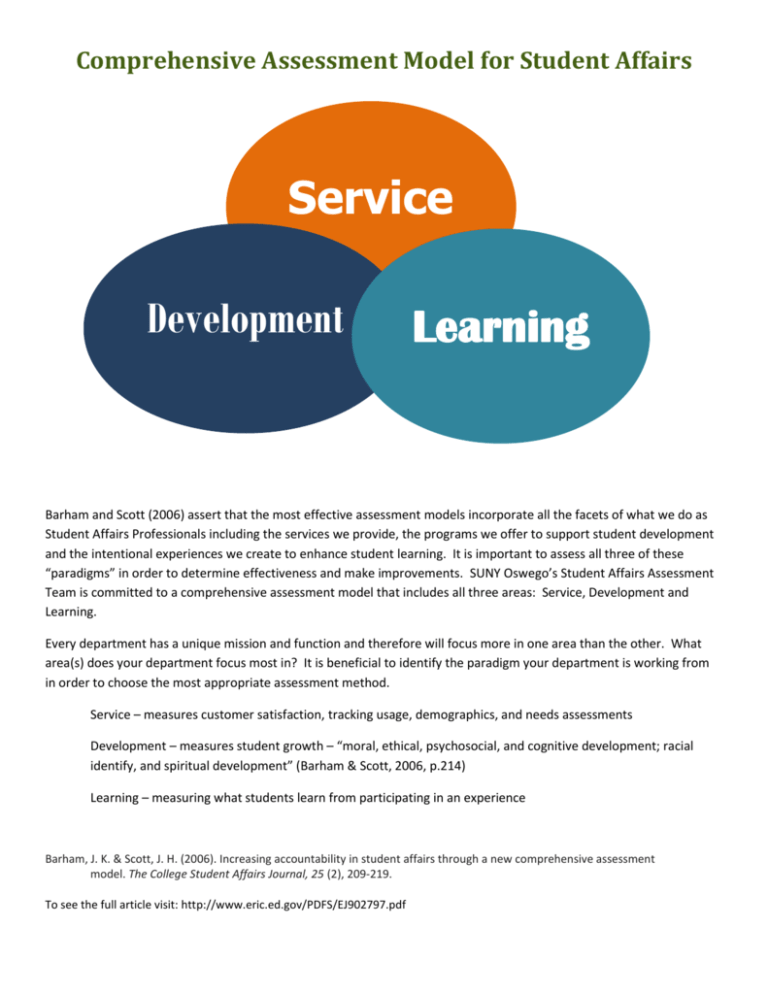
Comprehensive Assessment Model for Student Affairs Service Development Learning Barham and Scott (2006) assert that the most effective assessment models incorporate all the facets of what we do as Student Affairs Professionals including the services we provide, the programs we offer to support student development and the intentional experiences we create to enhance student learning. It is important to assess all three of these “paradigms” in order to determine effectiveness and make improvements. SUNY Oswego’s Student Affairs Assessment Team is committed to a comprehensive assessment model that includes all three areas: Service, Development and Learning. Every department has a unique mission and function and therefore will focus more in one area than the other. What area(s) does your department focus most in? It is beneficial to identify the paradigm your department is working from in order to choose the most appropriate assessment method. Service – measures customer satisfaction, tracking usage, demographics, and needs assessments Development – measures student growth – “moral, ethical, psychosocial, and cognitive development; racial identify, and spiritual development” (Barham & Scott, 2006, p.214) Learning – measuring what students learn from participating in an experience Barham, J. K. & Scott, J. H. (2006). Increasing accountability in student affairs through a new comprehensive assessment model. The College Student Affairs Journal, 25 (2), 209-219. To see the full article visit: http://www.eric.ed.gov/PDFS/EJ902797.pdf


